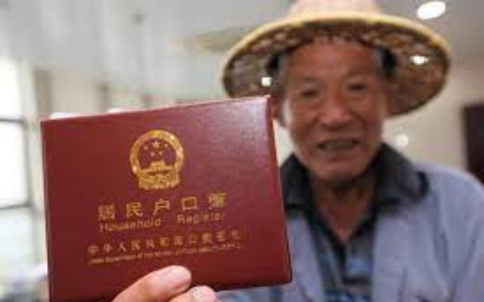By VedAitharaju
The rapid urbanization of Indian cities like Hyderabad, Bengaluru, Chennai, Delhi and Mumbai has resulted in disastrous city floods and loss of both people and life. Unregulated urbanization, and hyper boom of population, left unchecked often have disastrous consequences. From small issues like traffic to law and order to a city’s ecological eco-system being altered to fit in larger and larger pockets of populations. India’s urbanization story, especially that of Hyderabad has been disastrous. The Hyderabad floods of 2020 caused an estimated 5,000 crores revenue loss. [1] Lessons from China’s urbanization could be of much help and deserve some probing.

A central reason for Hyderabad’s floods was the fact, that multiple illegal constructions were constructed on river beds according to a report by NitiAayog [2]. Causing a disastrous pattern of floods akin to the one in Bengaluru or even Chennai. The problem is bigger than corruption within the Government and bad bureaucracy. Demand for illegal constructions arose in Hyderabad due to huge amounts of the population immigrating to Hyderabad for greater opportunities in almost a sudden wave of migration post the IT revolution. The market for illegal constructions was created due to the sheer magnitude and necessity to house a booming population. Therefore the central issue, hidden under the garb of bad bureaucracy and weak implementation of law and order is the unorganized mass migration to Hyderabad from rural areas. A system to control and regulate large-scale migrations to urban areas is the need of the hour.
Also read: What modern data says about caste system?
The Chinese system of Hukou is a shining example, of planned urbanization for a successful economy. It not only ensured, the growth of “urban slums” never took form in China (like the ones in India). But also created a balanced system of controlled migration to Urban centers, to ensure there is no sudden burden of larger populations migrating to the cities instantly.

What is Hukou?
Hukou is a form of the citizenship registration system. That has multiple rights of citizens attached to it. In the words of Professor Fei-Ling Wang:
“The hukou system requires every Chinese citizen to be officially and constantly registered with the hukou authority (the hukou police) since birth, as the legal basis for personal identification. The categories of non-agricultural (urban) or agricultural (rural), the legal address and location, the unit affiliation (employment), and a host of other personal and family information, including religious belief and physical features, are documented and verified to become the person’s permanent hukou record. A person’s hukou location and categorization or type were determined by his mother’s hukou location and type rather than his birthplace until 1998, when a child was allowed to inherit the father’s or mother’s hukou location and categorization.” [3]
Also read: HISTORY OF “CASTE” CONFLICT IN ANDHRA’S CAPITAL
How does this help control of urbanization?
“Officially and internally, the PRC hukou system has one common governance duty (to collect and manage the information of the citizens’ personal identification, kinship, and legal residence) and two “unique missions”: to control internal migration through managing temporary residents/visitors; and to have a tiered management of zhongdianrenkou (targeted people) in the population.” [4]
To put it in simpler terms, hukou ensures only the population with genuine reason to be in the city, are permitted to be in the city. China therefore has ensured that waves and waves of immigrants coming to urban centers, come in multiple waves, and only when required for the growth of the economy. While allegations of human rights revolutions, and misuse of Hukou system to suppress any dissent amongst citizens, are immense on the one party Chinese state are also true.

This system offers a form of greater control and ensures the issues that come with unchecked urban migration like that of illegal constructions, large-scale slums like our cities hold, and high rates of traffic that increase emissions and ruin both the air quality and overall environmental balance of cities can be avoided. A system like hukou of checked regulated city migration could have avoided the issue of pollution like that of Delhi, or large-scale slums like Dharavi in Mumbai, or the slums of Chennai and Hyderabad.
In fact, as Professor Fei-Li Wang says “China’s urbanization, as a consequence, is relatively small and slow compared to its economic development level. China’s urban slums are also relatively small and less serious compared to those in many other developing nations such as Brazil or India. Third, the hukou system has a less well-known but very powerful role of social control especially the management of the so-called targeted people (zhongdianrenkou)..”
This system has benefitted China largely in avoiding the problem of slums, city floods, and other disastrous environmental, sociological and law and order issues that rapid urbanization brings.
But no political party, or leader, or policymaker or bureaucrat thus far atleast in the case of Hyderabad, has spoken about a constructive approach to ensuring Hyderabad’s urbanization is smooth and avoids issues like flooding, eco-logical and environmental damage to the city.
A nation-wide discussion on the State’s policy toward unregulated urbanization is the need of the hour.
Also read: The hypocrisy of MIM
References:
[1]: https://www.hindustantimes.com/india-news/telangana-pegs-flood-damage-at-rs-9-400-cr-as-central-team-visits-hyderabad/story-vm4rCmrYHZYHn4lj5Fq56O.html
[2]: https://www.thehindu.com/news/national/telangana/illegal-constructions-and-encroachments-led-to-floods/article34022933.ece
[3] & [4] : China’s Household Registration (Hukou) System: Discrimination and Reform Friday, September 2, from 2:00 – 3:30 PM Room 2168 of the Rayburn House Office Building Statement of Fei-Ling Wang Professor, The Sam Nunn School of International Affairs, Georgia Institute of Technology, Atlanta, Georgia – From the American Congressional-Executive Commission on China. https://www.cecc.gov/sites/chinacommission.house.gov/files/documents/roundtables/2005/CECC%20Roundtable%20Testimony%20-%20Fei-Ling%20Wang%20-%209.2.05.pdf




